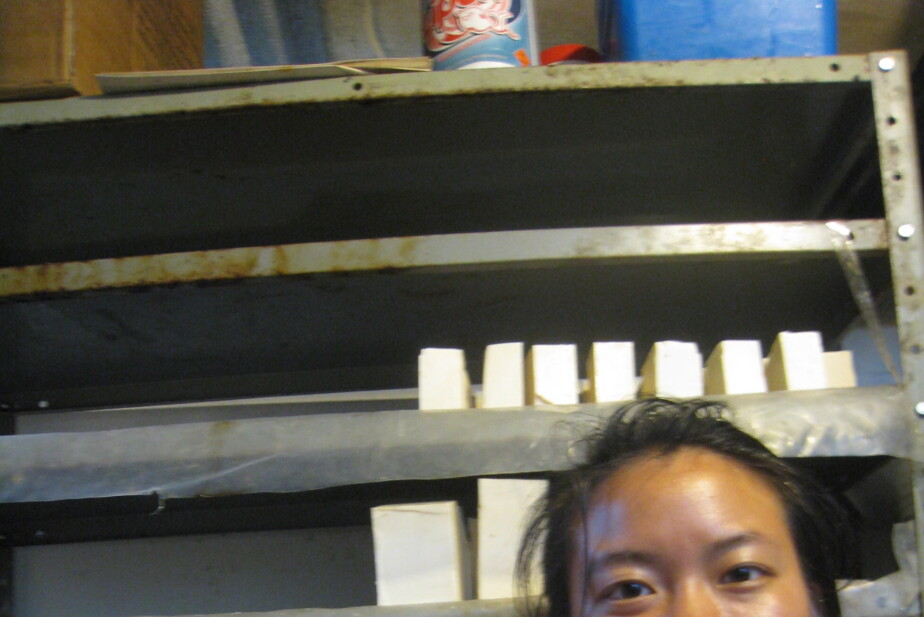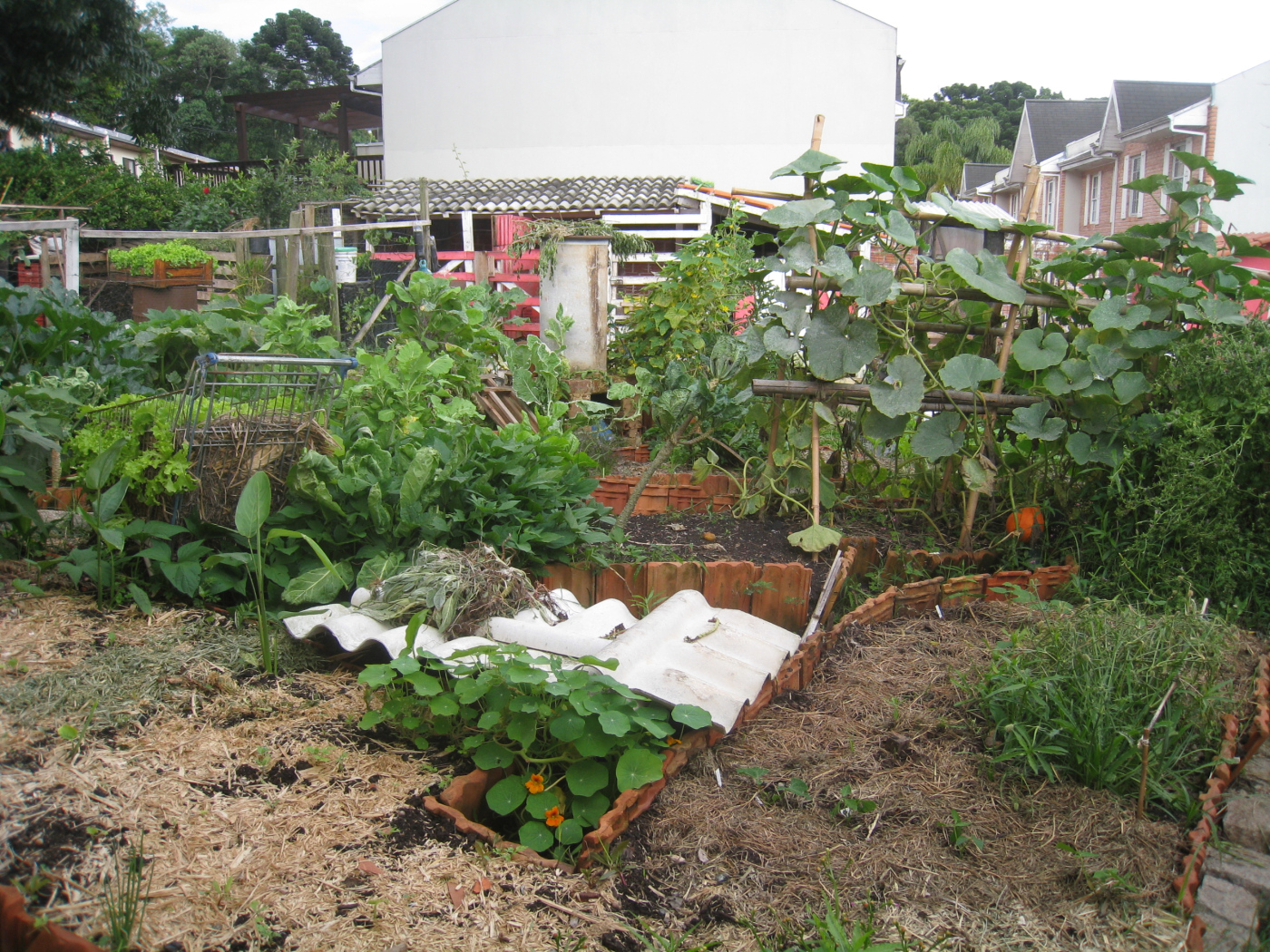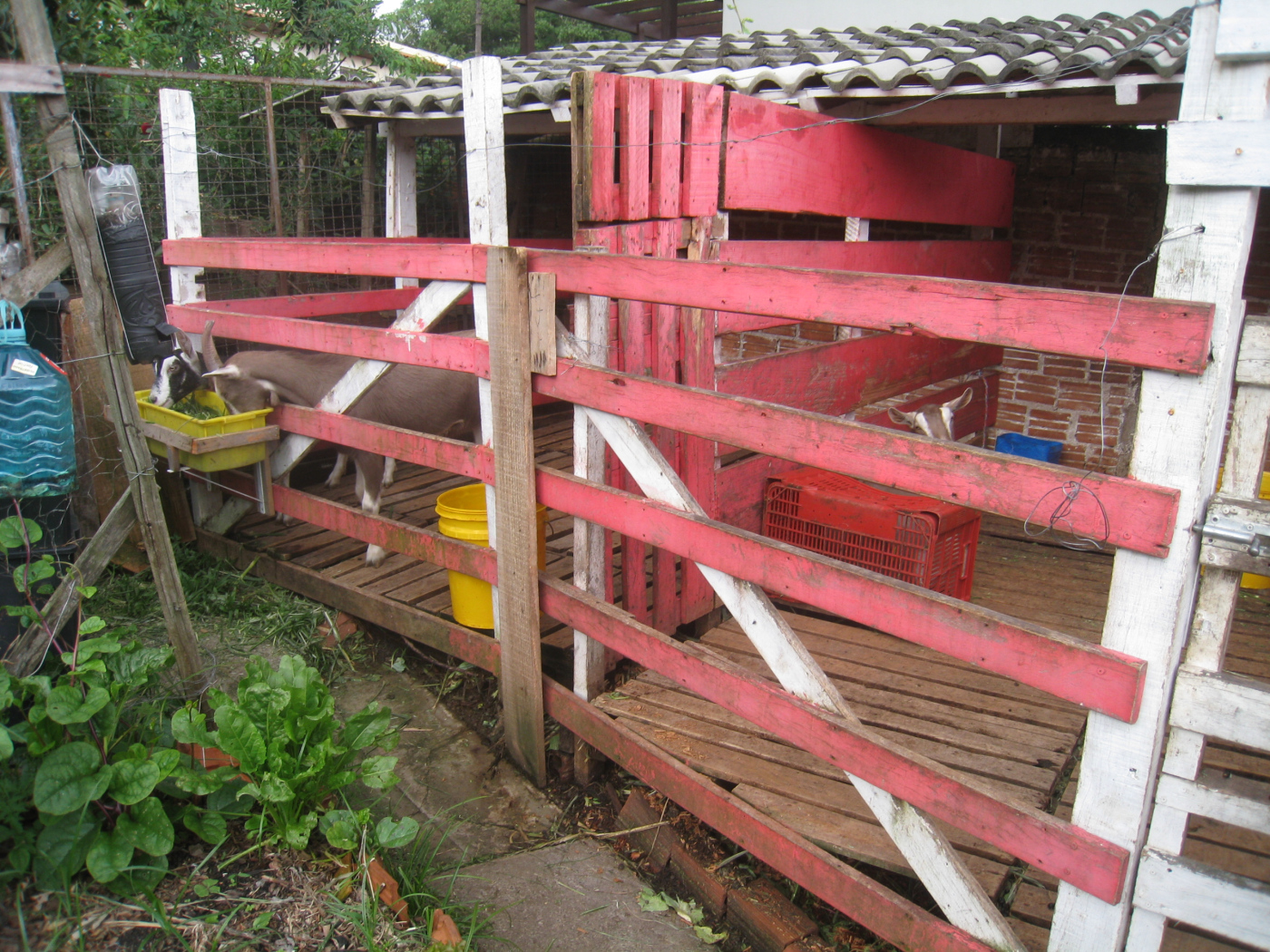
I carefully pull a feijão sprout out of its plastic birth carton. A fellow volunteer and I have already prepared its new home – a beautiful cozy hole. A home made of 3 parts regular soil and 1 part nutrient-rich compost. As Curitiba teases us with a few drops of rain, I settle the feijão into its new community. Its brothers and sisters live right next door – four of them in a straight line, all about a palm apart. We have three more species of feijão to plant next.

Although I have volunteered with a handful of non-profits around Curitiba in the past four months, Casa da Videira has been one of the most fantastic! By outline, they are an urban agriculture project. However, with strawberries hanging from buckets, guinea pigs as lawn mowers, research on innovative goat food, and a preservation project of five different types of potatoes, the suburban house is really anything but average, even with permaculture.
Casa da Videira is made up of several families that are reminding the world of everything endearing from the past. They inspire others into believing in environmental preservation, rather than convincing. They share their food and conversation abundantly with neighbors and volunteers. The windows and gate are always open. And as visitors crunch on the pavement toward the house, the rhythm is soothing rather than alarming. As one of the founders said to me the other day, “People around here usually don’t know us by Casa da Videira, burt rather by our names.”
I had gone there twice in 2013. And when I returned, the entire backyard looked completely different. Huge pumpkin leaves spilling over into the walkway. Lettuces sprouting out of a grocery cart on the right. Baby rabbits. Plump, healthy chickens clucking away. A whiteboard with charts of schedules, work tasks, and feeding schedules. Mountains of roasting compost in the corner. Tomato plant after tomato plant ready to be planted.
The afternoon started off with an exciting incident. One of the goats had gotten stuck in the back of her pen on a piece of iron that was holding an plastic white tube. The belly skin was way too far stretched and quite snuggled in on the iron. The owner untangled the skin, and the red flesh exposed itself. The goat was going to need stitches. I was to hold her head, another was to hold her front leg so she couldn’t run, and another held her back leg. As the goat stressed ate on the eggplant in front of her, the man stitched her up, explaining the whole process. She bellowed and struggled some, but it was over quickly. The same goat had choked on a piece of carrot a month or two ago, requiring surgery.


Every week, every day, Casa da Videira is active. Two weeks ago, I was lucky enough to help two Spanish exchange students on their research project using shredded sugar cane rather than soil to grow plants. This week, I packaged pounds of raw honey into sterilized glass jars and homemade soap with newspaper and yarn. Next week, I will likely again be amazed by the Casa da Videira community and have the opportunity to work on something worthwhile and meaningful. Before the end of 2014, this group of families will be moving to a rural city with a new mission – opening an informal college that “teaches everything that college doesn’t teach.”
On my first visit, one of the founders said, “I don’t ask questions.” ”What?” I responded, “I love questions.” ”No, I don’t ask questions. When someone is ready to tell me something, they will tell me,” he offered. We took a moment of silence.
It isn’t always easy to find an organization, much less people who have devoted their entire lives and families to something as outdated as free human connection. They give love without asking for anything in return. They don’t want to change the world, but I must say, I believe they’ve already started making it a better place. My heart, for one, has been touched and I plan to live and carry their philosophy when I return home.
